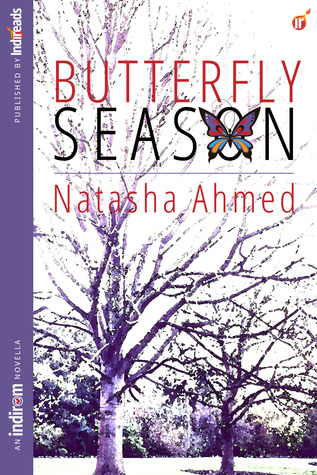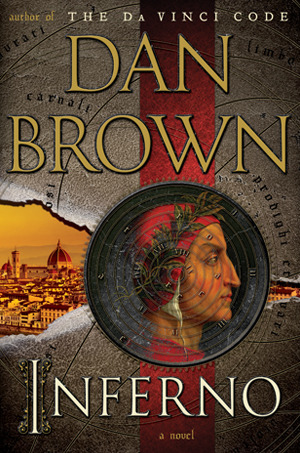I received a free copy of this book from IndiReads in exchange for a fair and honest review.
Mild Spoilers ahead.
Butterfly Season by Natasha Ahmed is a well written tale of what seems to be a simple love story on the surface, but is actually an introspection into societal mores and perceived rightness of conduct. Butterfly Season tells us the story of how Ahad and Rumi meet and fall in love against a backdrop of disapproving family members, familial honor, and conservatism.
From the first page (which contains some rather lovely lines of poetry by the Persian poet, Rumi) to the last one, I was drawn in by the easy to read language and by events that had me either shaking my fists or cheering on the characters.
I am not a fan of romance as a genre and I was a little wary of reading this book. In my opinion, the modern romance novel (whether it be based in present day or whether it be historical romance, a type I dislike intensely) usually has a heroine either unable to clearly decide what she wants or she is overly independent to the point of being standoffish; therefore by extension, only a man can rescue her from her staid self.
Like I said, not a fan.
But, in Butterfly Season, all the women are like girlfriends you’d have in real life. Rumi, while she has had a more conservative approach toward life, finally learns to let go of baggage and be her own woman. Her sister, Juveria could have been yet another stereotypical interfering family member who only cares for the family reputation/honor, but ultimately has a nice rescinding arc that helps her make up with her sister and repent her horrible actions. And then there’s my favorite, Mahira. I was looking through my notes for this review and I literally have one sentence that goes ‘Mahira is awesome.’ She is a loyal compassionate friend who has her life together and has a fairly loving marriage with her equally lovely husband, Faizan. Also, her line about ‘Rehan Rehana’ made me laugh – she has the best kind of humor.
Coming back to Rumi, who after all is one of the two main leads in the book, I liked her. There were moments in the book when I wanted to give her a bit of a shake, especially when she had her first quarrel with Ahad. I gasped in outrage when she actually thought ‘I need a ring,’ this after barely 2 weeks of being with a man she just met. I found it so outrageous that I had to go do my laundry and cool off before picking up the book again. But, I get it. What women like me take for granted (personal freedom, making our own choices) there are other women from other nations and societies that do not enjoy the same privileges. Or don’t believe those privileges exist. For most of those women, the promise of marriage is the only way to be considered respectable.
I also liked that Rumi had misgivings and doubts about her first sexual experience. There is a low point in the book when she asks Ahad if she is good enough for him that made me really feel for her – we have all been there.
Rumi makes quite a victorious comeback in my eyes. She chooses to control her life, to stop being afraid, I absolutely loved it that when the ring finally came, she didn’t jump straight into Ahad’s arms (who let’s face it, is a bit of a douchebag to her.) She made him stew a little and made it clear she was going to be with him on her own terms. You go girl!
Ahad, the hero of this story seems like a laid back, gentle person. I like that he is not perfect, and that he has a non traditional job – I believe he is an editor of coffee table art books. (I also quite enjoyed the fact that Rumi has the more conventional career of an architect – nice work, Natasha Ahmed) Ahad is respectful and self aware – he made sure multiple times Rumi was fine with them having sex for the first time. That was very classy.
There was this lovely little anecdote in the book of how Ahad’s mom taught him Urdu because she was ‘horrified’ he was developing a Cockney accent – learning Urdu helped harden his T’s and D’s. I thought this was a exquisite little look into expat culture and brought up many memories of my childhood.
Butterfly Season is a beautiful light introduction to Pakistani culture with references to Rumi (the poet), ghazals, and the dulcet voice of the indomitable Nayyara Noor. What came across as forced were the more western pop culture references (Star Wars for example) Also, can we avoid the racial cliches that white women are basically shrill shrews who get inebriated real fast? I could have done without that.
Ah family – toward the end, there is a satisfying make up conversation between both sisters. I didn’t really relate to that particular aspect of the family drama especially Juveria’s obsession with reputation. But the sad truth is there are countries in which misogyny is equated to a misplaced sense of honor.
One of my favorite authors is Ismat Chughtai (what a great name and what an even greater writer) – it might be a stretch to say this book reminded me of the Grand Dame of Urdu fiction, but as I write this review, I can’t help think of Chughtai and the stories she wrote about feminine sexuality and gender roles. Any book that makes you examine ideas and established norms is a good book in my opinion. I recommend purchasing this book for fans of romance and also for readers looking for a lighthearted view into Pakistani culture. A fine debut indeed.
 Mild spoilers ahead.
Mild spoilers ahead. The League of Delphi written by Chris Everheart takes us through a mysterious wealthy town, its enigmatic denizens and an ancient conspiracy. The book’s protagonist, Zachary White (not his real name) and his girlfriend race to find out what lies beneath the otherwise placid surface of Arcanville, discovering prophecies straight out from ancient Greece.
The League of Delphi written by Chris Everheart takes us through a mysterious wealthy town, its enigmatic denizens and an ancient conspiracy. The book’s protagonist, Zachary White (not his real name) and his girlfriend race to find out what lies beneath the otherwise placid surface of Arcanville, discovering prophecies straight out from ancient Greece. You know how sometimes you think, let me sit on the couch, do something productive like read or send my nana an email, and hours later, look up from the Wikipedia article about the oldest pub in Europe you were reading on your smartphone and hate-think ‘Oh My God, what a waste of time! I hate myself.’?
You know how sometimes you think, let me sit on the couch, do something productive like read or send my nana an email, and hours later, look up from the Wikipedia article about the oldest pub in Europe you were reading on your smartphone and hate-think ‘Oh My God, what a waste of time! I hate myself.’? Seti’s Charm by Chris Everheart (what a great author name!) is about the adventures of one Max Carter, a young 14 year old budding archaeologist. Max works with his grandfather at their family owned museum. One evening, a priceless ancient Egyptian artifact is stolen, the museum burned down and his grandfather gets badly hurt in the process, ending up in the hospital. Thus begins a mad dash to secure the artifact and return it to Egypt.
Seti’s Charm by Chris Everheart (what a great author name!) is about the adventures of one Max Carter, a young 14 year old budding archaeologist. Max works with his grandfather at their family owned museum. One evening, a priceless ancient Egyptian artifact is stolen, the museum burned down and his grandfather gets badly hurt in the process, ending up in the hospital. Thus begins a mad dash to secure the artifact and return it to Egypt.



 You’d think a book full of exciting car chases, mysterious women, strange exotic lands, ancient literary texts, all mixed in with some historical exposition would be a promising, unputdownable book. I guess Inferno is surprising, because even though it checks off all the parameters I just listed above, it manages to be the most boring, unending (in a bad way) and generally unexciting tome to ever have been published.
You’d think a book full of exciting car chases, mysterious women, strange exotic lands, ancient literary texts, all mixed in with some historical exposition would be a promising, unputdownable book. I guess Inferno is surprising, because even though it checks off all the parameters I just listed above, it manages to be the most boring, unending (in a bad way) and generally unexciting tome to ever have been published.